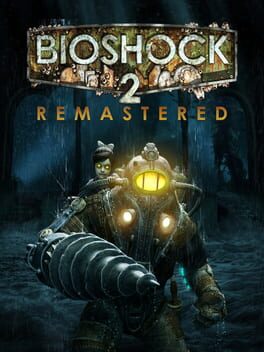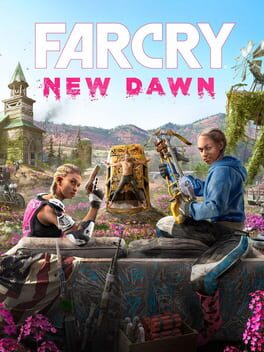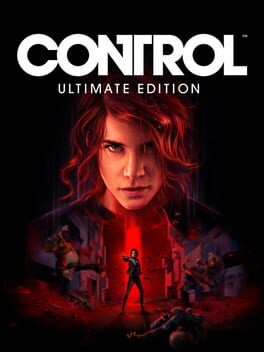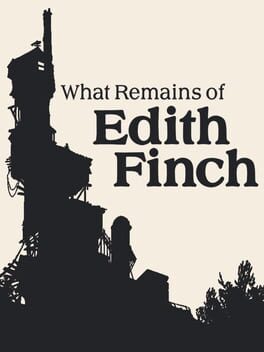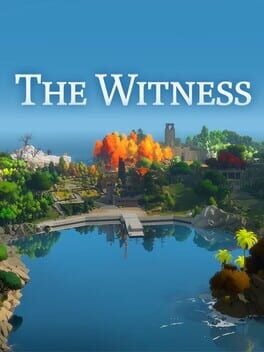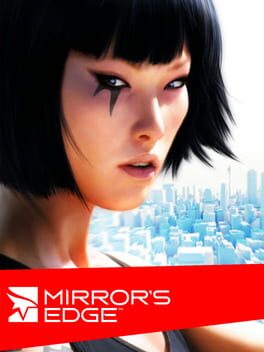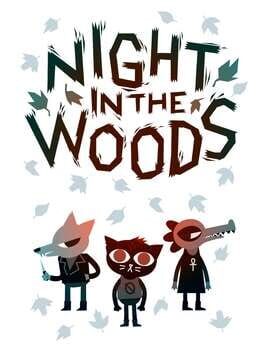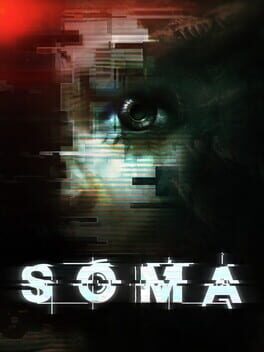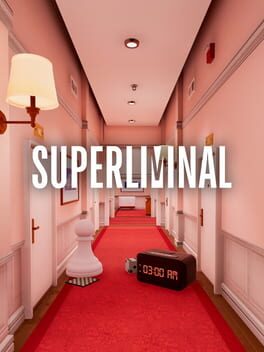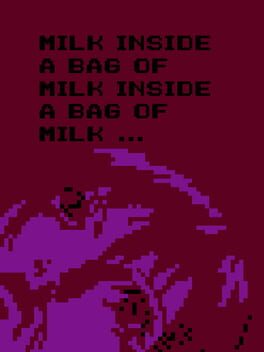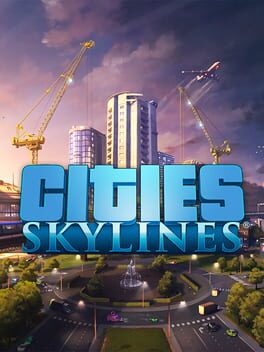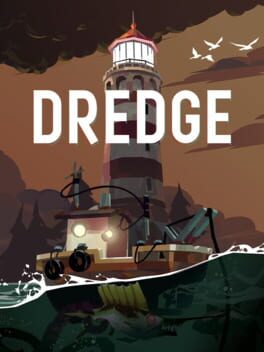Craigjs91
48 Reviews liked by Craigjs91
A story of a society gone mad - Ryan wanted to build a utopia of ultimate freedom, but without any proper restraints it fell prey to amoral capitalists, ideological cult leaders, deepening paranoia and inequality, and the worst of human impulses, given free reign.
I cannot say what is the perfect form of government; democracy certainly isn’t it, but neither is anything the great hypocrite Ayn Rand suggested, nor what Ryan accomplished. The original Bioshock stories are deeply critical of the ideas of objectivism by portraying the logical apocalyptic conclusion of human selfishness run rampant.
But it’s also weirdly centrist. Bioshock games offer no alternatives to their broken societies. Bioshock Infinite famously equated the horrors of slavery and the revolt of the slaves, the most disgusting Bioshock has been, but even in Bioshock 2 your main opponent is the only person in Rapture talking about cooperation between the disenfranchised, social welfare to take care of the less lucky, and countering the power of the elite who are shown very willing to abuse it while breaking their own rules of freedom. That she also turns out to be mad and selfish is just what videogame villains are wont to do, whether they want it or not.
It’s a weird experience though, playing a game like that - you walk through the decaying walls of a failed idea, fighting some socialist-cultists, and following the lead of an unknown girl calling you father and the words of an extreme capitalist who in his previous life exploited and abused without regret and who even still encourages you to kill children for a small boost in power; that his story arc is supposed to be the one to make you cry is asking a lot (and I have to give it to the actor that he almost convinced me, despite my utter despise of this character).
Yet that’s also what makes the (better) Bioshock games more interesting than your usual run and gun. They might not be as smart as they think they are, but they are trying to grapple with some serious ideas. That they don’t offer any answers (besides “it’s all fucked”), might not even be as big a problem as I make it out to be, as long as they offer some motivation for thought.
Oh, and just playing it, the shooting and plasming and so on, is really quite fun. Playing on the hardest difficulty does sometimes feel like you’re trying to undermine your own experience of a fun run’n’gun, but it’s never challenging enough to be annoying and the game offers you such a variety of fun and interesting tools to tackle its challenges that it takes a long time for the enthusiasm for the mechanics to run its course.
I was however done with the game earlier than it ended. The last few levels I was ignoring most of the world and exploring little, just going where I was supposed to in order to move the story towards the end. It’s not a long game, but I felt it exhausted its mechanics some considerable time before the ending. For the last part, I was even running around with only the drill, having little interest left in the shooting that I had already been doing for such a long time.
The world itself is deliciously evocative, and I especially appreciated the occasional horror vibe. Rapture is a cool place to explore, much cooler imo than whatever the place in Bioshock Infinite is called (and I don’t even like games with water).
If it had been a bit shorter, and if the ending hadn’t been quite as meh, I would have probably considered it my favourite Bioshock game. As it is now, that’s probably Minerva’s Den. But hey, this one’s pretty good too.
I cannot say what is the perfect form of government; democracy certainly isn’t it, but neither is anything the great hypocrite Ayn Rand suggested, nor what Ryan accomplished. The original Bioshock stories are deeply critical of the ideas of objectivism by portraying the logical apocalyptic conclusion of human selfishness run rampant.
But it’s also weirdly centrist. Bioshock games offer no alternatives to their broken societies. Bioshock Infinite famously equated the horrors of slavery and the revolt of the slaves, the most disgusting Bioshock has been, but even in Bioshock 2 your main opponent is the only person in Rapture talking about cooperation between the disenfranchised, social welfare to take care of the less lucky, and countering the power of the elite who are shown very willing to abuse it while breaking their own rules of freedom. That she also turns out to be mad and selfish is just what videogame villains are wont to do, whether they want it or not.
It’s a weird experience though, playing a game like that - you walk through the decaying walls of a failed idea, fighting some socialist-cultists, and following the lead of an unknown girl calling you father and the words of an extreme capitalist who in his previous life exploited and abused without regret and who even still encourages you to kill children for a small boost in power; that his story arc is supposed to be the one to make you cry is asking a lot (and I have to give it to the actor that he almost convinced me, despite my utter despise of this character).
Yet that’s also what makes the (better) Bioshock games more interesting than your usual run and gun. They might not be as smart as they think they are, but they are trying to grapple with some serious ideas. That they don’t offer any answers (besides “it’s all fucked”), might not even be as big a problem as I make it out to be, as long as they offer some motivation for thought.
Oh, and just playing it, the shooting and plasming and so on, is really quite fun. Playing on the hardest difficulty does sometimes feel like you’re trying to undermine your own experience of a fun run’n’gun, but it’s never challenging enough to be annoying and the game offers you such a variety of fun and interesting tools to tackle its challenges that it takes a long time for the enthusiasm for the mechanics to run its course.
I was however done with the game earlier than it ended. The last few levels I was ignoring most of the world and exploring little, just going where I was supposed to in order to move the story towards the end. It’s not a long game, but I felt it exhausted its mechanics some considerable time before the ending. For the last part, I was even running around with only the drill, having little interest left in the shooting that I had already been doing for such a long time.
The world itself is deliciously evocative, and I especially appreciated the occasional horror vibe. Rapture is a cool place to explore, much cooler imo than whatever the place in Bioshock Infinite is called (and I don’t even like games with water).
If it had been a bit shorter, and if the ending hadn’t been quite as meh, I would have probably considered it my favourite Bioshock game. As it is now, that’s probably Minerva’s Den. But hey, this one’s pretty good too.
Far Cry New Dawn
2019
The Far Cry formula has gotten so rote by now that I just couldn't get into this game. The wacko nemesis, the cookie cutter weapons, the faceless goons, the endless quests, the meaningless story. Now they also gatekeep basic actions behind upgrades (can't use binoculars or carry more than one weapon or have any fun, I guess) and offer to sell you weapons from the crafting table for actual money (meaning they're more incentivised to make crafting a hassle so you'd cough up).
But it was really once I got to the first story mission in the sandbox and was hit by another instance of the quality Ubisoft humour with a guy called Beans trying to put together a collection of maps and such and calling it, get this, Wiki-Beans, that I decided I'm done. Mediocre mechanics can be saved by a great story and vice versa, but with Far Cry it seems everything's mediocre-to-outright-bad now.
Well, fine, the world looks pretty. But I really wish the game allowed me to get more fun abilities straight away (if there even are any). The auto-driving is a really nice addition since it lets me do anything better with my life; too bad the constant enemy patrols keep attacking and forcing another boring empty fight. The weapons are essentially the same you find in most shooters (especially boring after having just played R&C: Rift Apart and Resistance 3) and instead of coming up with more interesting weapons, they just add different levels of quality, like in MMORPGs, so that you start with a shoddy version of the same weapon you'll hopefully one day get in a good version (and you can get there faster if you pay some cold hard cash).
I thought maybe liberating an outpost would be more fun than the boringly scripted story missions, but hiding behind a rock trying to figure out where people are shooting me and then wasting ammo on taking them down because I'm using level 1 weapons quickly convinced me otherwise. The companions seem hardly worth the cost of revival when they keep getting shot down constantly, even on medium difficulty. After a while I just stopped reviving them, considering it a waste of both time and resources. And it's honestly no wonder considering the enemy AI seems advanced enough to only run and gun, often standing still in the middle of a field while shooting at me.
And it just shows how much care Ubisoft put into the gender selection when enemies keep referring to you as "him" in their barks even when you're a woman and other characters refer to you only as Captain or Cap, so that they wouldn't have to code in two names. There are gender-neutral names, you know, right, guys?
It's overall an infuriating game design that has little care for the game it's selling, but more for the product it's shipping. Now, I'm not saying you can't enjoy it, and I'm guilty of enjoying some badly designed and/or un-player-friendly games myself, but I just don't have any more place in my life for the repetitive and empty calories of Far Cry. In time I might come to appreciate it more, but the idea of giving more time to this game threatens to cause an existential crisis. I’d rather try something that remembers to make an effort.
But it was really once I got to the first story mission in the sandbox and was hit by another instance of the quality Ubisoft humour with a guy called Beans trying to put together a collection of maps and such and calling it, get this, Wiki-Beans, that I decided I'm done. Mediocre mechanics can be saved by a great story and vice versa, but with Far Cry it seems everything's mediocre-to-outright-bad now.
Well, fine, the world looks pretty. But I really wish the game allowed me to get more fun abilities straight away (if there even are any). The auto-driving is a really nice addition since it lets me do anything better with my life; too bad the constant enemy patrols keep attacking and forcing another boring empty fight. The weapons are essentially the same you find in most shooters (especially boring after having just played R&C: Rift Apart and Resistance 3) and instead of coming up with more interesting weapons, they just add different levels of quality, like in MMORPGs, so that you start with a shoddy version of the same weapon you'll hopefully one day get in a good version (and you can get there faster if you pay some cold hard cash).
I thought maybe liberating an outpost would be more fun than the boringly scripted story missions, but hiding behind a rock trying to figure out where people are shooting me and then wasting ammo on taking them down because I'm using level 1 weapons quickly convinced me otherwise. The companions seem hardly worth the cost of revival when they keep getting shot down constantly, even on medium difficulty. After a while I just stopped reviving them, considering it a waste of both time and resources. And it's honestly no wonder considering the enemy AI seems advanced enough to only run and gun, often standing still in the middle of a field while shooting at me.
And it just shows how much care Ubisoft put into the gender selection when enemies keep referring to you as "him" in their barks even when you're a woman and other characters refer to you only as Captain or Cap, so that they wouldn't have to code in two names. There are gender-neutral names, you know, right, guys?
It's overall an infuriating game design that has little care for the game it's selling, but more for the product it's shipping. Now, I'm not saying you can't enjoy it, and I'm guilty of enjoying some badly designed and/or un-player-friendly games myself, but I just don't have any more place in my life for the repetitive and empty calories of Far Cry. In time I might come to appreciate it more, but the idea of giving more time to this game threatens to cause an existential crisis. I’d rather try something that remembers to make an effort.
My the COVID game.
I came to it rather late into the COVID isolation, which meant I was in a perfect spot to connect with its depiction of offices with empty tables, dim lights, and rooms filled with workplaces with little privacy. As I walked through the Oldest House, I felt deep nostalgia and a kind of comfort for all the cubicles and desks I passed, imagining working there myself and doing all the regular office things that we’ve come to mock and dislike. After a year and a half of social distancing, any kind of social office life seemed comforting. And Control boasts one of the best places in gaming, and due to its own nostalgic view of a certain type of old workplace, there’s a lot to feed one’s imagination.
The mechanics themselves are pretty fun, though the action does get repetitive the nearer the end you get as you’ve already become something of a god, flying around and throwing rocks or shooting grenades at anybody who’s mindless enough to mess with you. The omnipotence is fun at first but becomes even somewhat boring by the end. And the game is a bit too long for what it’s offering, both mechanics-wise and in its story (that intrigues for a while but kinda runs out of anything interesting by the end).
I also made the mistake of trying out the DLCs in this complete edition before I had finished the game itself or before time had made me yearn for more Control and they ended up being the worst experience I had with the game; I didn’t finish any of them.
I did finish the main game though, and while by the end I was ready to be done with it, I will cherish what the game gave me with its first half for as long as I remember COVID. So, probably for my whole life.
I came to it rather late into the COVID isolation, which meant I was in a perfect spot to connect with its depiction of offices with empty tables, dim lights, and rooms filled with workplaces with little privacy. As I walked through the Oldest House, I felt deep nostalgia and a kind of comfort for all the cubicles and desks I passed, imagining working there myself and doing all the regular office things that we’ve come to mock and dislike. After a year and a half of social distancing, any kind of social office life seemed comforting. And Control boasts one of the best places in gaming, and due to its own nostalgic view of a certain type of old workplace, there’s a lot to feed one’s imagination.
The mechanics themselves are pretty fun, though the action does get repetitive the nearer the end you get as you’ve already become something of a god, flying around and throwing rocks or shooting grenades at anybody who’s mindless enough to mess with you. The omnipotence is fun at first but becomes even somewhat boring by the end. And the game is a bit too long for what it’s offering, both mechanics-wise and in its story (that intrigues for a while but kinda runs out of anything interesting by the end).
I also made the mistake of trying out the DLCs in this complete edition before I had finished the game itself or before time had made me yearn for more Control and they ended up being the worst experience I had with the game; I didn’t finish any of them.
I did finish the main game though, and while by the end I was ready to be done with it, I will cherish what the game gave me with its first half for as long as I remember COVID. So, probably for my whole life.
Death is an inevitability.
Yet we spend such great parts of our life worried and anxious about it, trying to escape it, feeling sad and crushed about meeting it, grieving everything that we cared about inevitably succumbing to the great reaper.
It is as natural part of life as birth, perhaps even more so - you might not be born, but you will die.
What Remains of Edith Finch might seem as only about death. You will notice it for the first time when you open the Options menu - the book with their family tree is right there, and if you look at it for even a bit, you might notice something strange - only one name doesn't have a death date.
And far too many that do, have one too close to birth for comfort.
Indeed, the Finch family seems plagued by death, some in their old age, most in young, one terribly so; and you step into the shoes of the only living member of the family and through her eyes explore the huge family house from which no room of a dead person has ever been removed, only new parts have been added for the newly received.
It is a house of death, a literal museum of the family Finch, the rooms of its members kept in pristine conditions of the day they died - so deeply obsessed are the leaders of the family with memory that even a living twin had to share their room with the dead one for 8 years. It's a tragedy, and suffice to say, this family should really have moved on.
And yet the game is not nearly as morbid or as depressing as it sounds. Even within the most tragic of tales (even within the one I had the most difficulty playing through since my own child is the closest to that age, those moments mere miniature drops of time behind), there is hope and the acknowledgement of the beauty of life. A boy dies, but also flies; a man dies, but also lives; a girl dies, but within gives the greatest performance of her life; and so on. Within their deaths, they are not dying, but living, however short it might seem.
And you see it all through their eyes - within their rooms, you come upon the missives of their last memories and by entering them, you will learn what made them tick, and see their final moments; and again - while it sounds depressing, in the moment, it is not really so.
It is only afterwarfs that the real weight of this empty house and all those dead kids really hit me. The game, even within its very last moments, looks at death with acceptance and not with despair, but just a little dry sense of loss, as if it's too bad we didn't get to take the afternoon tea, but oh well, such is life.
Such is life, and such is dead; and What Remains of Edith Finch is the best walking sim I've ever played, and a surefire inclusion in my all time favourite games.
What's more, I yearn to walk again through the cluttered corridors and hidden passages of the childhood home of Edith Finch, even if all I'll meet there will be my lonely thoughts, the lingering ghosts, and the unavoidable fact of death. But what beauty as well!
Yet we spend such great parts of our life worried and anxious about it, trying to escape it, feeling sad and crushed about meeting it, grieving everything that we cared about inevitably succumbing to the great reaper.
It is as natural part of life as birth, perhaps even more so - you might not be born, but you will die.
What Remains of Edith Finch might seem as only about death. You will notice it for the first time when you open the Options menu - the book with their family tree is right there, and if you look at it for even a bit, you might notice something strange - only one name doesn't have a death date.
And far too many that do, have one too close to birth for comfort.
Indeed, the Finch family seems plagued by death, some in their old age, most in young, one terribly so; and you step into the shoes of the only living member of the family and through her eyes explore the huge family house from which no room of a dead person has ever been removed, only new parts have been added for the newly received.
It is a house of death, a literal museum of the family Finch, the rooms of its members kept in pristine conditions of the day they died - so deeply obsessed are the leaders of the family with memory that even a living twin had to share their room with the dead one for 8 years. It's a tragedy, and suffice to say, this family should really have moved on.
And yet the game is not nearly as morbid or as depressing as it sounds. Even within the most tragic of tales (even within the one I had the most difficulty playing through since my own child is the closest to that age, those moments mere miniature drops of time behind), there is hope and the acknowledgement of the beauty of life. A boy dies, but also flies; a man dies, but also lives; a girl dies, but within gives the greatest performance of her life; and so on. Within their deaths, they are not dying, but living, however short it might seem.
And you see it all through their eyes - within their rooms, you come upon the missives of their last memories and by entering them, you will learn what made them tick, and see their final moments; and again - while it sounds depressing, in the moment, it is not really so.
It is only afterwarfs that the real weight of this empty house and all those dead kids really hit me. The game, even within its very last moments, looks at death with acceptance and not with despair, but just a little dry sense of loss, as if it's too bad we didn't get to take the afternoon tea, but oh well, such is life.
Such is life, and such is dead; and What Remains of Edith Finch is the best walking sim I've ever played, and a surefire inclusion in my all time favourite games.
What's more, I yearn to walk again through the cluttered corridors and hidden passages of the childhood home of Edith Finch, even if all I'll meet there will be my lonely thoughts, the lingering ghosts, and the unavoidable fact of death. But what beauty as well!
The Witness
2016
Mirror's Edge
2008
man i feel like this just wasn't, fun at all? it's probably the best looking 7th gen game but like, a clunky game is usually fine, i'm very forgiving of those, but clunky and fast paced do NOT mesh well together. Genuinely was one of the most frustrating experiences i've had at times
but i don't wanna be too harsh on it, it's got a nice aesthetic and i really love how they did the cutscenes even though the story was, whatever. just wish the game was more, so much potential here
atleast the sequel exists! i'm sure that one builds upon the foundation of this one and fixes most problems, right? (clueless)
but i don't wanna be too harsh on it, it's got a nice aesthetic and i really love how they did the cutscenes even though the story was, whatever. just wish the game was more, so much potential here
atleast the sequel exists! i'm sure that one builds upon the foundation of this one and fixes most problems, right? (clueless)
Night in the Woods
2017
It was cute I really liked the writing and the art. The gameplay was pretty slow and repetitive in parts, but the characters won me over and got me rooting for everyone pretty quickly. Also quite a fun game within a game.
Final Fantasy XIII
2009
This was my first Final Fantasy as a kid, so maybe I'm biased, but you know what? Fuck it, I love this game, and I'll die on that hill despite everyone else hating it. I remember crying at the ending when I first finished it, so that says something.
I fully accept that a lot of the criticism for Final Fantasy XIII is valid and understandable, but I maintain that a lot of it isn't - it became 'cool' to hate on XIII because everyone did back then, it was something you ragged on for Reddit upvotes, and the more it happened the less anyone was inclined to even give it a fair chance. They'll point to characters being insufferable with a complete lack of empathy - I remember the absolute brigade of loathing for Hope, a grieving child who just watched his mother die in front of him, and people calling him immature and annoying like the entire point of his arc wasn't to show him growing and healing past that. If I'd seen my mother violently killed in front of me at 14 years old, I highly doubt I'd have been as collected and capable as Hope is. I also remember everyone dragging Vanille's Australian accent and calling it fake, despite her VA being Australian.
The graphics are gorgeous, the character designs are excellent (which includes the background NPCs - have you seen Yuj?), the soundtrack is beautiful. I don't find the story convoluted or hard to follow at all, and honestly I don't fully understand where that criticism comes from; I actively enjoyed going through all the datalog entries and seeing how they changed and updated as I progressed the plot, but I didn't feel that I needed to read them in order to follow the basic events happening in front of me. As for the linearity, sure, it's linear - but linear doesn't mean bad, and it's no more linear than Final Fantasy X was. The only difference is that FFXIII doesn't disguise it. If you're the average FF fan who worships FFX as the "last great mainline title" but dismisses FFXIII as a "hallway simulator"... well, I don't know where I was going with that sentence, but I disagree with you.
The characters are perfectly likeable to me. My personal favourites were Sazh (I could talk for hours about how genuine and funny and paternal he is, and how much I love where his story goes throughout the game - that one scene with Vanille was chilling, even as I rationally knew he couldn't have done it), Snow (yes, I found his heroic bluster endearing), and Vanille (I think she's sweet and surprisingly complex). Another shoutout to Yuj, too - it may mostly be his character design that caught my eye, but I always enjoyed him popping up through the story. I love Serah, too, but that's mostly based on sequels, so I'll leave my thoughts on her for when I get to reviewing those.
My only real criticisms of the game are the lack of hub towns and the inability to choose your own party members for the first portion of the story (I forget how many chapters it takes to unlock).
As minor side notes, I love how the Crystarium level up screens look, and the sound design is great - I love the way your footsteps sound as you run across the crystal surface of Lake Bresha.
Favourite Female Character(s): Vanille
Favourite Male Character(s): Sazh, Snow
First Character I Liked: Sazh
Favourite Character Design: Yuj, Jihl
Favourite OST: The Promise, Somnus
Favourite Scene: The return to Cocoon / crashing the Grand Prix
Least Favourite Character: Would Barthandelus be a cop-out answer?
I fully accept that a lot of the criticism for Final Fantasy XIII is valid and understandable, but I maintain that a lot of it isn't - it became 'cool' to hate on XIII because everyone did back then, it was something you ragged on for Reddit upvotes, and the more it happened the less anyone was inclined to even give it a fair chance. They'll point to characters being insufferable with a complete lack of empathy - I remember the absolute brigade of loathing for Hope, a grieving child who just watched his mother die in front of him, and people calling him immature and annoying like the entire point of his arc wasn't to show him growing and healing past that. If I'd seen my mother violently killed in front of me at 14 years old, I highly doubt I'd have been as collected and capable as Hope is. I also remember everyone dragging Vanille's Australian accent and calling it fake, despite her VA being Australian.
The graphics are gorgeous, the character designs are excellent (which includes the background NPCs - have you seen Yuj?), the soundtrack is beautiful. I don't find the story convoluted or hard to follow at all, and honestly I don't fully understand where that criticism comes from; I actively enjoyed going through all the datalog entries and seeing how they changed and updated as I progressed the plot, but I didn't feel that I needed to read them in order to follow the basic events happening in front of me. As for the linearity, sure, it's linear - but linear doesn't mean bad, and it's no more linear than Final Fantasy X was. The only difference is that FFXIII doesn't disguise it. If you're the average FF fan who worships FFX as the "last great mainline title" but dismisses FFXIII as a "hallway simulator"... well, I don't know where I was going with that sentence, but I disagree with you.
The characters are perfectly likeable to me. My personal favourites were Sazh (I could talk for hours about how genuine and funny and paternal he is, and how much I love where his story goes throughout the game - that one scene with Vanille was chilling, even as I rationally knew he couldn't have done it), Snow (yes, I found his heroic bluster endearing), and Vanille (I think she's sweet and surprisingly complex). Another shoutout to Yuj, too - it may mostly be his character design that caught my eye, but I always enjoyed him popping up through the story. I love Serah, too, but that's mostly based on sequels, so I'll leave my thoughts on her for when I get to reviewing those.
My only real criticisms of the game are the lack of hub towns and the inability to choose your own party members for the first portion of the story (I forget how many chapters it takes to unlock).
As minor side notes, I love how the Crystarium level up screens look, and the sound design is great - I love the way your footsteps sound as you run across the crystal surface of Lake Bresha.
Favourite Female Character(s): Vanille
Favourite Male Character(s): Sazh, Snow
First Character I Liked: Sazh
Favourite Character Design: Yuj, Jihl
Favourite OST: The Promise, Somnus
Favourite Scene: The return to Cocoon / crashing the Grand Prix
Least Favourite Character: Would Barthandelus be a cop-out answer?
Soma
2015
Man, this is one of my favourite horror games. I played it on Safe Mode, and the overwhelming consensus seems to be that that's the superior way to play in order to experience the atmosphere and be able to take in the setting and details, so I concur and would recommend other players do the same. This isn't a jumpscare-y game, per se, especially with Safe Mode enabled, but it's horror in the psychological, pervading, keeps-you-up-at-night-having-an-existential-crisis way, which is my favourite flavour of horror. Even when I was at my absolute wimpiest and couldn't make myself watch five minutes of a horror movie, I loved psychological horror - plot twists, bendy narratives, eerie atmospheres, that feeling of something just under the surface being terribly, terribly wrong but not knowing what yet... SOMA has all of it and more.
People rag on Simon for being unintelligent as a protagonist, but I think he's written realistically for someone whose entire arc revolves around the fact that he has brain trauma, as well as the fact that he's very clearly in deep denial about a lot of things right up until the ending of the game.
I also understand why people criticise the ending for adding the post-credits sequence and say it ruins the emotions of the initial ending scene, but I wouldn't change it. The crushing, shocking despair of the first scene, only for that overwhelming relief when you find yourself on the ARK, and the brilliant way they re-incorporated the survey that they'd had you take earlier was great. I ended up with completely different answers to when I'd taken it the first time, and a huge part of that was because of that relief and gratitude I felt in comparison to being down there; I don't think it could've worked so well any other way.
People rag on Simon for being unintelligent as a protagonist, but I think he's written realistically for someone whose entire arc revolves around the fact that he has brain trauma, as well as the fact that he's very clearly in deep denial about a lot of things right up until the ending of the game.
I also understand why people criticise the ending for adding the post-credits sequence and say it ruins the emotions of the initial ending scene, but I wouldn't change it. The crushing, shocking despair of the first scene, only for that overwhelming relief when you find yourself on the ARK, and the brilliant way they re-incorporated the survey that they'd had you take earlier was great. I ended up with completely different answers to when I'd taken it the first time, and a huge part of that was because of that relief and gratitude I felt in comparison to being down there; I don't think it could've worked so well any other way.
Superliminal
2019
I remember seeing a video showing this game off years ago over on Tumblr, and I was blown away by how creative and mind-trippy it all seemed. I completely forgot the name of it, but I always remembered the video, so a few years later I went hunting for what the game title was to play it for myself and found Superliminal.
This was a genuinely super neat concept. I dig games like this, and it didn't overstay its welcome to the point that the puzzles and core mechanics lost their novelty for me.
Might replay it on stream or something when it's been long enough that I've forgotten the solutions. This is the kind of game where seeing people's reactions to it all would be fun.
This was a genuinely super neat concept. I dig games like this, and it didn't overstay its welcome to the point that the puzzles and core mechanics lost their novelty for me.
Might replay it on stream or something when it's been long enough that I've forgotten the solutions. This is the kind of game where seeing people's reactions to it all would be fun.
I was 22 when I had my first psychotic episode. I had dropped everything and moved to Austin with a girlfriend who was not a good fit for me, pursuing my dream of (somehow) becoming a professional actor. None of this was going well; the relationship and the jobs I was working were all dead ends that I wasn't really acknowledging or dealing with.
Eventually all the stress and self-deceit came to a head in a giant fight, and I started thinking things that were decidedly false. I came to believe that I was the center of a conspiracy of surveillance, Truman Show style, that was being run by my friends. Every detail that I noticed confirmed this: I saw a car make a weird U-turn which to me was proof positive that it was following me. A dump truck passed the window with a flashing yellow light; this was clearly someone trying to signal to me that they were in on the conspiracy. A cat sitting on the hood of a car must have been some kind of sophisticated spy camera.
I never experienced hallucinations, I was never violent and I didn't cackle maniacally like every single clueless, no-effort depiction of mental illness in Hollywood and elsewhere. The only thing that was missing was my capacity to critically examine my own ideas.
You know how when you're thinking super hard about something for a long time, and you finally figure it out, and you get that big rush of endorphins like "ahhhhh I finally got it." It's a great feeling, but you have to work to get there right? You have to come up with and reject a lot of ideas before you find the one that fits. Well, I was having that "ahhhh" feeling with every fleeting notion. You don't realize how many thoughts you reject as nonsense until you lose the ability to do so.
You might see a squirrel run toward you and think "Wouldn't it be cool if that was some kind of little robot?" then immediately reject that idea without a second thought. That rejection is what was broken in me; even the most momentary flight of fancy became the unassailable truth. I saw the squirrel and it was self-evident that it was being remotely-controlled as a way to keep tabs on me. Not a single thought in my mind that any of this stuff was wrong.
Public mental health facilities in Texas at the turn of millennium were about as you'd expect. I was there involuntarily and kept trying to escape, so I spent a lot of the first few days restrained (more than 20 years later I still get a panicky feeling in my chest when I think about being strapped to that bed). I was shot up with Haldol that left me a drooling, twitching mess. At no point did I receive anything resembling therapy. After a few weeks the doctor assigned to my case finally came back from vacation and I seemed fine so they basically shrugged and let me go.
"Depression with psychotic features" they called it that first time. Eventually, after experiencing more episodes and being institutionalized and re-diagnosed a few more times, they settled on the diagnosis of Bipolar I disorder and I've been stable on lithium for over a decade now. I was lucky and got basically the happiest possible outcome. I don't think that's the case for most people dealing with mental health issues, especially psychosis.
Mental health is like sexuality, in that we as a society are obsessed with it but only seem to engage with it in the most unhealthy ways. In our entertainment media, references to insanity are constant. Calling someone's sanity into question is an easy and common insult. After every mass shooting, the airwaves are crammed with politicians scapegoating the mentally ill. We're finally to the point where (in some circles) it's considered unacceptable to use "gay" or "retarded" as insults, but nobody bats an eye if you call someone "crazy" or "psycho".
But for all of that, it's basically unheard of for someone in power to say anything meaningful about mental health. When Hollywood approaches the topic, the results are universally rancid. Games tend to fall into two camps: crazy-person-as-horror-villain studio hack jobs, or autobiographical indies that actually bring some experience to the picture.
And that's why Hellblade stands out so much to me. It's not an indie; it has the full weight of a storied and talented (albeit small) studio behind it. But they've done the work to actually try to depict psychosis in a realistic way, that brings the player into the experience as an exercise in empathy, not just a cheap aesthetic choice.
It was a marvel to me how the puzzles in the game are built around seeing patterns that aren't really there, exactly like I did during my psychotic episodes. The scene where all the trees have eyes, but they're really just tricks of the light, was so incredibly true to my experience. I never saw things that weren't there; I saw things that were there but misinterpreted them in critical ways, just like Senua.
And Senua? Possibly my favorite protagonist of any game. Melina Jeurgens gives it so much of herself, and her character design is such a breath of fresh air in an industry full of gross fan service. She looks like a real person! She's still pretty, but doesn't look like a RealDoll that someone dressed up in cosplay gear.
I could only play this game in short sessions because it's so damn intense. The story hits hard, and Senua's agonizing deaths were challenging. Mechanically, the game is really quite light. Only a couple gameplay verbs are made available as the story progresses very linearly. Hellblade aims to challenge the player on a sensory, emotional and intellectual level more than a gameplay one. For me, it was deeply effective and affecting.
With the sequel on the horizon it's exciting to imagine what Ninja Theory has in store for us next. It really feels like the conversation around mental health is starting to turn; the crazies are finally out telling their stories, taboos and misinformation be damned. I love how indie developers have stepped up and started raising the level of discourse around mental health and I really hope that more and bigger studios follow suit. Fear of retaliation or judgment can make mental illness a really isolating experience. It really does feel good to feel seen, and playing a game like Hellblade is really great reminder that I'm not alone.
Eventually all the stress and self-deceit came to a head in a giant fight, and I started thinking things that were decidedly false. I came to believe that I was the center of a conspiracy of surveillance, Truman Show style, that was being run by my friends. Every detail that I noticed confirmed this: I saw a car make a weird U-turn which to me was proof positive that it was following me. A dump truck passed the window with a flashing yellow light; this was clearly someone trying to signal to me that they were in on the conspiracy. A cat sitting on the hood of a car must have been some kind of sophisticated spy camera.
I never experienced hallucinations, I was never violent and I didn't cackle maniacally like every single clueless, no-effort depiction of mental illness in Hollywood and elsewhere. The only thing that was missing was my capacity to critically examine my own ideas.
You know how when you're thinking super hard about something for a long time, and you finally figure it out, and you get that big rush of endorphins like "ahhhhh I finally got it." It's a great feeling, but you have to work to get there right? You have to come up with and reject a lot of ideas before you find the one that fits. Well, I was having that "ahhhh" feeling with every fleeting notion. You don't realize how many thoughts you reject as nonsense until you lose the ability to do so.
You might see a squirrel run toward you and think "Wouldn't it be cool if that was some kind of little robot?" then immediately reject that idea without a second thought. That rejection is what was broken in me; even the most momentary flight of fancy became the unassailable truth. I saw the squirrel and it was self-evident that it was being remotely-controlled as a way to keep tabs on me. Not a single thought in my mind that any of this stuff was wrong.
Public mental health facilities in Texas at the turn of millennium were about as you'd expect. I was there involuntarily and kept trying to escape, so I spent a lot of the first few days restrained (more than 20 years later I still get a panicky feeling in my chest when I think about being strapped to that bed). I was shot up with Haldol that left me a drooling, twitching mess. At no point did I receive anything resembling therapy. After a few weeks the doctor assigned to my case finally came back from vacation and I seemed fine so they basically shrugged and let me go.
"Depression with psychotic features" they called it that first time. Eventually, after experiencing more episodes and being institutionalized and re-diagnosed a few more times, they settled on the diagnosis of Bipolar I disorder and I've been stable on lithium for over a decade now. I was lucky and got basically the happiest possible outcome. I don't think that's the case for most people dealing with mental health issues, especially psychosis.
Mental health is like sexuality, in that we as a society are obsessed with it but only seem to engage with it in the most unhealthy ways. In our entertainment media, references to insanity are constant. Calling someone's sanity into question is an easy and common insult. After every mass shooting, the airwaves are crammed with politicians scapegoating the mentally ill. We're finally to the point where (in some circles) it's considered unacceptable to use "gay" or "retarded" as insults, but nobody bats an eye if you call someone "crazy" or "psycho".
But for all of that, it's basically unheard of for someone in power to say anything meaningful about mental health. When Hollywood approaches the topic, the results are universally rancid. Games tend to fall into two camps: crazy-person-as-horror-villain studio hack jobs, or autobiographical indies that actually bring some experience to the picture.
And that's why Hellblade stands out so much to me. It's not an indie; it has the full weight of a storied and talented (albeit small) studio behind it. But they've done the work to actually try to depict psychosis in a realistic way, that brings the player into the experience as an exercise in empathy, not just a cheap aesthetic choice.
It was a marvel to me how the puzzles in the game are built around seeing patterns that aren't really there, exactly like I did during my psychotic episodes. The scene where all the trees have eyes, but they're really just tricks of the light, was so incredibly true to my experience. I never saw things that weren't there; I saw things that were there but misinterpreted them in critical ways, just like Senua.
And Senua? Possibly my favorite protagonist of any game. Melina Jeurgens gives it so much of herself, and her character design is such a breath of fresh air in an industry full of gross fan service. She looks like a real person! She's still pretty, but doesn't look like a RealDoll that someone dressed up in cosplay gear.
I could only play this game in short sessions because it's so damn intense. The story hits hard, and Senua's agonizing deaths were challenging. Mechanically, the game is really quite light. Only a couple gameplay verbs are made available as the story progresses very linearly. Hellblade aims to challenge the player on a sensory, emotional and intellectual level more than a gameplay one. For me, it was deeply effective and affecting.
With the sequel on the horizon it's exciting to imagine what Ninja Theory has in store for us next. It really feels like the conversation around mental health is starting to turn; the crazies are finally out telling their stories, taboos and misinformation be damned. I love how indie developers have stepped up and started raising the level of discourse around mental health and I really hope that more and bigger studios follow suit. Fear of retaliation or judgment can make mental illness a really isolating experience. It really does feel good to feel seen, and playing a game like Hellblade is really great reminder that I'm not alone.
The Witness
2016
Top 50 Favorites: #42
A beam of sunshine on your skin. I'll be candid, I thought this was really mid when I first played it - but I have not been able to shake its profound allure in the now over 4 years since that time. I'm still not fond of all its quirks: some of its of-the-era attempts at eccentricity grate (chiefly anything to do with its 'story'), there's still some tedium to be had, and much of this is definitely still too unnecessarily cryptic for its own good. But fucking hell... just LOOK at it. This is patently like, top five visuals of all time for this or any system. If there's one thing this exceeds at above all else, it's putting you in your own little luscious world and giving you all the time on Earth to bask in its otherworldly aesthetic. Imagine how your most cherished and beautiful memories look in your mind, this is what that looks like. Intricate and poignant in a way that I'm not even sure I fully grasp yet (if I ever will). A deeply meditative, unforgettable, affecting, and - in its own way - transcendent experience. I used to think it was artsy-fartsy, now it knocks my socks off every time. Maybe that's the point?
A beam of sunshine on your skin. I'll be candid, I thought this was really mid when I first played it - but I have not been able to shake its profound allure in the now over 4 years since that time. I'm still not fond of all its quirks: some of its of-the-era attempts at eccentricity grate (chiefly anything to do with its 'story'), there's still some tedium to be had, and much of this is definitely still too unnecessarily cryptic for its own good. But fucking hell... just LOOK at it. This is patently like, top five visuals of all time for this or any system. If there's one thing this exceeds at above all else, it's putting you in your own little luscious world and giving you all the time on Earth to bask in its otherworldly aesthetic. Imagine how your most cherished and beautiful memories look in your mind, this is what that looks like. Intricate and poignant in a way that I'm not even sure I fully grasp yet (if I ever will). A deeply meditative, unforgettable, affecting, and - in its own way - transcendent experience. I used to think it was artsy-fartsy, now it knocks my socks off every time. Maybe that's the point?
Cool story. Love seeing these more informed and nuanced portrayals of mental health struggles. I like the role this game foists on you, and that it doesn’t waste the player’s time (at least my playthrough was super effing short which is, like, yes please more of that, games). I didn’t care for the amount of typing I had to do on my Switch, and the music was piercingly loud.
Cities: Skylines
2015
Dredge
2023
After a long yet relaxing day of catching cod and tracking mackerel, you reel in the latest catch only to see that one gilled monstrosity has fanged teeth and three heads. It’s an otherwise normal catch, but this aquatic perversion sticks out. Although before this abnormality and the grim implications it might have can sink in, the moon rises and the peaceful ocean sights turn into a waking hallucinogenic nightmare. This half-calm, half-stressful scenario is what playing Dredge is like, as it mixes the tranquility of fishing with the tension of horror. And as strange as that mix is, it’s quite a great hook.
Read the full review here:
https://www.comingsoon.net/games/reviews/1278641-dredge-review-ps5-worth-buying
Read the full review here:
https://www.comingsoon.net/games/reviews/1278641-dredge-review-ps5-worth-buying
